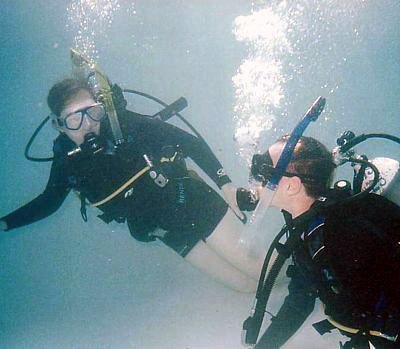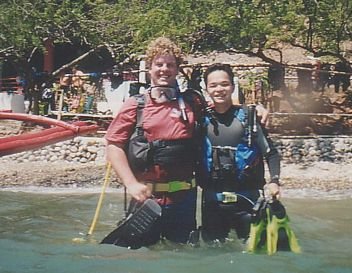The Buddy System
Most activities are safer with a companion, and diving is no exception. A dive buddy provides assistance during preparations, a set of eyes to look after your safety, and assistance in the event of an incident or accident.
Safety isn't the only benefit of the buddy system. Diving is more enjoyable when you have someone to share the experience with. A buddy provides a second set of eyes to search for marine life, a feeling of security knowing you aren't alone, and a friend to share the memory with after the dive is completed.

Finding a Dive Buddy
The best buddy is one who is familiar with your diving abilities. Excellent examples are close friends and spouses. If you are taking up diving alone and do not know any other divers, you'll meet other divers in your class or local dive clubs.
Most dive operators require that you dive with a buddy, and pairing available divers is part of their pre-dive process. So if you are participating in a boat dive by yourself, the divemaster will help you find a buddy for your dive.

Qualities of a Good Dive Buddy
Choose your buddy carefully. A good buddy can become a lifelong friend and enhance your diving experience. The wrong buddy can make a dive miserable and increase your risks.
A good buddy respects the other's diving abilities. For example, an experienced diver should never pressure a less experienced diver to dive beyond his or her abilities. Doing so puts both divers at risk, so dives should be planned for the abilities of the less experienced diver.
Buddies must also agree on the dive plan and stick to this plan throughout the dive. Communication is difficult underwater, so deviating from a plan could create confusion.
Finally, buddies must be willing to remain close to each other both on the surface and during the dive. Buddies who stray from each other are in no position to offer assistance in the event it's needed.